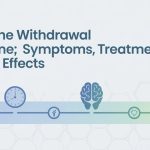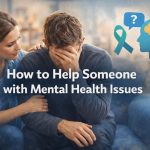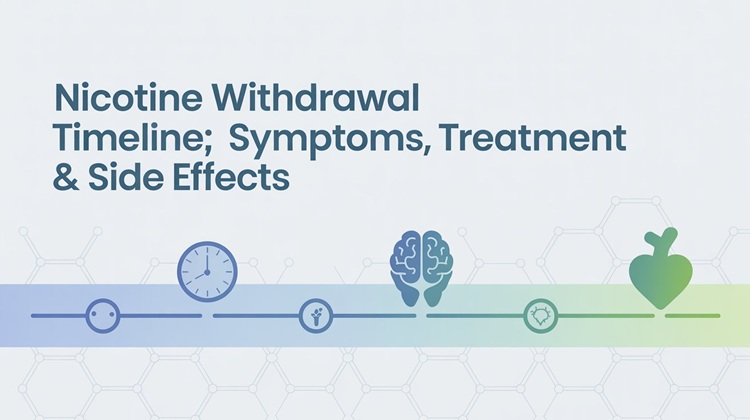Separation Anxiety Disorder (SAD) has been misconceived to be a disorder that can be applied to an early age only. Nevertheless, the sizable fear of separation from pleasant companions or places can be experienced even by adults. Although the experience of some anxiety when separated from close relationships is normal, in some people, this fear takes the form of chronic and disabling anxiety.
When you are often consumed with worry when you are apart from someone you love or you fear future separation with dread, then you might be having Anxiety Disorder.
The realization of this condition is the major step in controlling the condition. This article will discuss three major symptoms of Separation Anxiety Disorder in adults, how the condition is diagnosed, and what to look out for in the affected persons, as well as the reasons and causes of Separation Anxiety Disorder. Without treatment, separation anxiety may disrupt relations, career, and quality of life.
Three Signs of Separation Anxiety Disorder
This is a list of three big signals that show that the separation anxiety can be not only a temporary effect:
1. You Experience Intense Fear When Away from Loved Ones
Panic or extreme fear of being physically separated from a person you have some emotional attachment to is a major red flag of separation anxiety disorder. This is not the usual separation anxiety that one may develop because of the separation, but it is too much and too constant.
You might be:
- The frequent check-up is through text messages or phone calls.
- Being afraid that something will go wrong to your loved one when they are away.
- Avoid any situation that will demand you to be separated from them, even briefly.
- These phobias may be so strong that they can make you dysfunctional. As in the case scenario, you can cancel meetings, be absent at work, or not go out to socialize because you need to be near the person you feel like losing.
- When such behaviors and thoughts seem familiar, you need to take a closer look on how much they are interfering with your emotional health.
2. You Have Physical Symptoms When Separated
Separation anxiety is not just in the mind, as your body may also be affected. Most individuals with this disorder complain of physical symptoms anytime they are separated with their loved ones and these symptoms include:
- Stomachache or headache.
- Nausea or dizziness.
- Panic attacks.
- Difficulty in breathing.
- Rapid heartbeat.
This may occur when anticipating separation and even during or before. You can experience getting ill before a journey or cannot sleep at night due to the fear that the person who is closest to you could be in danger.
These responses are more than normal stress. When physical discomfort or panic is the norm when being separated with someone, then it is likely that a separation anxiety disorder may occur.
3. You Have Trouble Maintaining Independence
The healthy relationships will not be all encompassing with you and you need a level of independence but when you realize that you cannot live or make any form of decision, whether big or small, without the presence of another, it may be another indicator of separation anxiety.
Among the typical behaviors are the following:
- Being an emotional person and having everything dependent on one individual.
- Never doing anything that would result in being by themselves.
- The constant reassurance that everything is alright in the relationship is necessary.
- Being unwilling to spend even the shortest time with each other individually.
These habits may be harmful even to your development, not to mention relationships. The fear and need of dependency can create stress even in the innermost strong relationships and even restrict personal growth.
It is essential to identify such behavior as the first step in the healing process.
Separation Anxiety Disorder Symptoms for Diagnosis
According to the Diagnostic and Statistical Manual of Mental Disorders (DSM-5), Separation Anxiety Disorder in adults is diagnosed when symptoms:
- Continue for more than six months.
- Not age-appropriate to the person in developmental terms.
- Causes substantial distress or any impairment in some social, occupational or other key areas.
Core diagnostic symptoms may include:
- Repetitive, inordinate traumatization of separation forethinking or separation self-experience.
- Certain, constant apprehension of loss of a key attachment figure.
- Denial or hesitation to venture out because of fear of separation.
- Nightmares of separation occur recurrently.
- Somatic symptoms during the separation or the expectation of such to happen.
SAD belongs to the larger group of anxiety disorders, which also includes such conditions as generalized anxiety disorder, social anxiety disorder, and panic disorder. Sharing of symptoms is common among many people, and a professional diagnosis is important in the process of treating them.
Signs in Loved Ones with Separation Anxiety
Sometimes, it is difficult to recognize Separation Anxiety Disorder among adults, particularly within intimate relationships, where the dependency on emotions seems to be the standard. These are some of the symptoms to watch out for in loved ones:
- They should always know your locations, and they may freak out in case they are unable to contact you.
- They shun what is socially or career-separative.
- They can show extreme worry to know that you are safe or even want to go with you everywhere.
- They exaggerate when saying goodbye is needed, even for brief periods.
All these actions are not concerned with domination over other people; they are usually motivated by severe fears of desertion or aggression. The identification of these signs in a loved one can ignite empathy and compel them to seek treatment.
Get Help for Separation Anxiety Disorder
SAD is not merely missing somebody because SAD is a treatable kind of mental ailment. In case either you or a loved one is having any of the above-mentioned signs, treatment is possible.

Palm Coast Treatment Solutions provides cordial dealings according to the requirements of people with anxiety disorders. Be it the social anxiety disorder, the generalized anxiety disorder, or even the panic disorder, our professional team will guide you through the correct path to getting treatment.
We provide:
- Recognized psychiatric assessment, General psychiatric assessment
- Instead, there are evidence-based therapies such as Cognitive Behavioral Therapy (CBT).
- Support groups and one-on-one counseling.
- The use of medicine when needed.
- Instruments to develop self-reliance, endurance and emotional stability.
Separation anxiety should not be a hindrance to leading a full autonomous life. Contact Palm Coast Treatment Solutions now, at (386) 284-4151. We will come on board and assist you in making the first steps to peace of mind and long-term recovery.






















